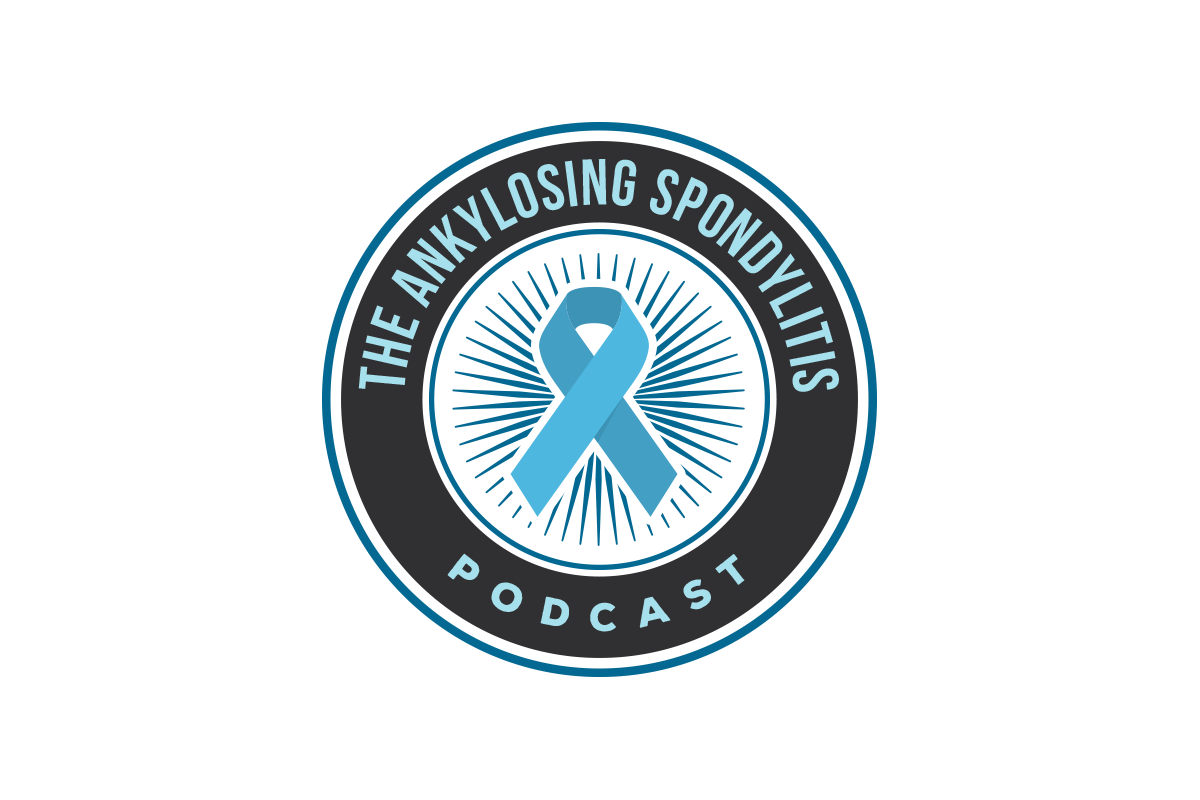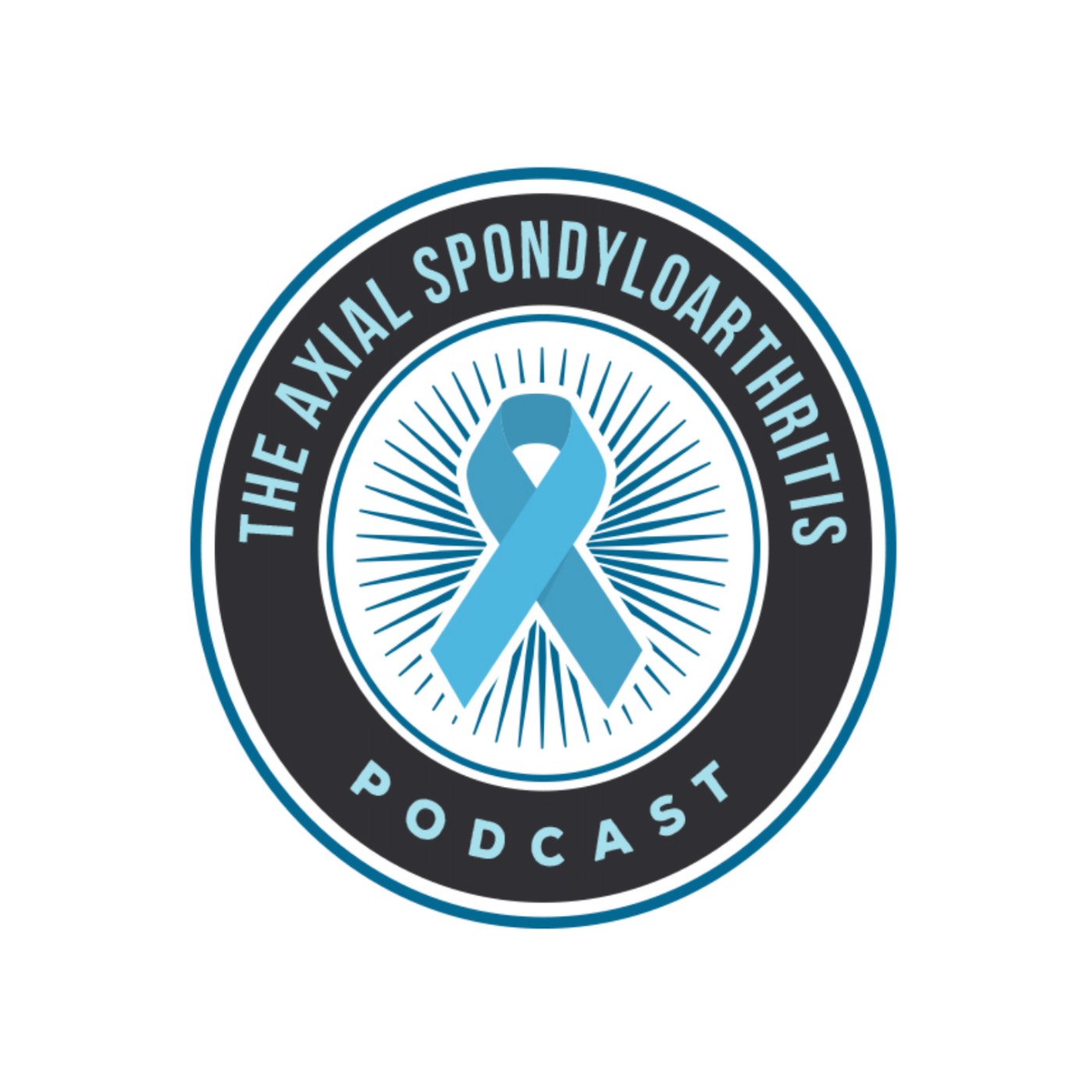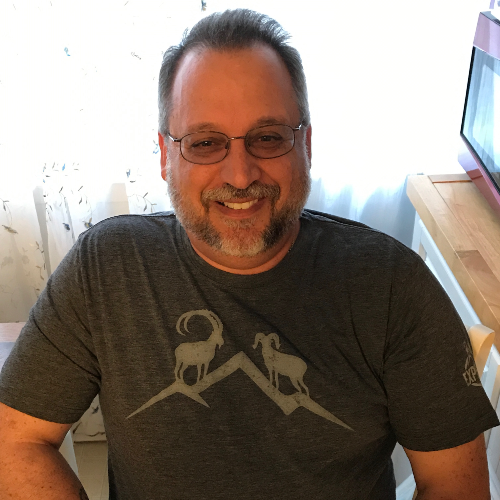Episode 23
Diagnosed with Ankylosing Spondylitis, Now What?
Hello, and welcome to this episode of The Ankylosing Spondylitis Podcast. This is going to be the 23rd episode already. This is fantastic. In this episode I'm going to talk about, you've been diagnosed with Ankylosing Spondylitis. Now what? First I want to recognize that it's just been amazing. The number of downloads I've seen coming through for November, is looking like it could top October, which was a record month. So thank you to everybody that's listening. Thank you for all the feedback I've been getting. We've also had some people checking out the show from a couple new countries, South Korea, Bulgaria, Singapore, and Honduras. So welcome to those new places, and also a flurry of people out of Ireland have been downloading the show. So to all the listeners, Thank you so much. So let's jump in and do the Question of the Week.
What was I going to talk about? Question of the Week. Oh, yeah. Brain fog. I don't know about y’all, but I've seen this discussed multiple times throughout the forums. I get these brain fog episodes. I get things like I can't quite comprehend anymore, and I myself get that. I do a weekly trivia game and there's answers that pop up that I know. I know them and I just can't think of them or I want to say something to somebody and I, I sit there and it just rattles around my head. I'm like, “I know the answer”, but why can't I get this out?
Well, forgetting names, losing words, trouble concentrating. You know, brain fog is common. It can be disturbing. I don't like getting in and I'm sure nobody else does. It can be thing that causes concern when you're at work, if you forget things, will I forget things? Did I forget something? All that can play into your stress related to work and maybe even trigger a flare if it gets too bad?
A study done in 2018 that was on Rheumatoid Arthritis patients, not Ankylosing Spondylitis patients, but I think there are enough similarities that is of interest in that study found that they think that there's a connection between inflammation and cognitive dysfunction. The inflammation disrupts signals between pain receptors in the brain literally fogging up mental functioning. That's very interesting. So I'd be curious if anybody's brain fog gets worse during a flare, have you noticed it? Have you noticed in times of high stress, your brain fog gets worse? You know, now, I haven't had any writing or spelling issues result of that. I'd be curious to know if any of you guys have mine is just recalling certain things. My recollection of facts and figures gets real murky.
There are also some medications that may potentially cause some brain fog. One person I saw blamed their brain fog on Humira. I don't know if that's true or not, that's just what I saw them saying. Other drugs, such as prednisone, it's put out there to reduce inflammation, but it can sometimes affect cognitive
Issues. Again, I found nothing that said these were long-term effects. They were more short term when. drugs were in your system. There's also some cholesterol lowering statins, which may contribute to brain fog. I'm on one of those. And that may also be part of the issue. See, there we go. Couldn't get the words out.
I'm going to do this, I suggest you do this as consult your doctor. I'm not a doctor. None of this is, you know, hard and fast medical advice is just to make you aware of some issues so that you can bring these up and talk to your doctor about them. So you're not going crazy. Most likely, these are not long term permanent effects they may most likely are medication effects. So again, talk to your doctor, see what he or she says is the best course of action going forward. I've seen one person and this is only for states where it's legal, obviously, who swears by cannabis to control the brain fog. It's not something I've tried, but whatever works for you is the best. So make sure that you're getting a lot of sleep, stay organized, if it's affecting you, and a lot of different areas of your life, plan out your day if needed, and take time out. If you have to take time out to kind of step back, reset yourself, do a meditation, whatever it is to kind of calm yourself down and get yourself back into a spot where you can process information correctly. And now, let's go on to the rest of the episode.
So you've been diagnosed with Ankylosing Spondylitis. Now what? You know, maybe you just received this diagnosis from your rheumatologist you've been seeing. This could be your first rheumatologist, could be second, third, or fourth one if you were having issues with any of them. They've given you, lots of information.
There are some things you want to generally keep in mind when looking at Ankylosing Spondylitis. You know, when did you start to notice symptoms? Did you experience the pain for three more months? Do you have more pain in the morning or evenings? Can you exercise the some of the pain? Those are some things that the rheumatologist may ask. Those are things that you want to just kind of keep in the back of your mind as you work with your rheumatologist and maybe start to journal your experience with Ankylosing Spondylitis. So you get a better idea of how to get a handle on them. You know, once you've been diagnosed, the rheumatologist is going to also want to know stuff like family history, personal history, do a physical exam, imaging, like x rays and MRIs. And finally, blood work. Seems like every time I go into a doctor, they're drawing blood to test me to check how the medications are interacting with me.
I was diagnosed in 1984 at the age of 14, and finally had why I had been in pain for the last few years. Being only 14, how can a diagnosis be processed by a 14 year old. When there was no such thing as the internet, there was no such thing as talking to other people that had Ankylosing Spondylitis. It was just here's what the doctor said, here's what you can take and come back in six months. So there really wasn't any way for my 14-year-old mind to process anything. I just said, okay, and went on with my life. As an adult, not sure how I would deal with that, especially now with the internet, which is great and allows you to connect with people research things, but you can also over research some stuff as an adult, you are going to think about this much differently than I did as a 14 year old kid.
Looking through the websites, as I was going on thinking about this, I found a great article titled, ‘Newly Diagnosed, Four Things You Should Know, by Lisa Marie Basile (I hope I said that last name correct). She is such a nice person. I've reached out and talked to her several times. Here is a link to this article. It's fantastic. So this is really going to be a summation of a lot of what Lisa said, her information is so good.
Number one, your emotional responses to your diagnosis are totally valid. You know, you might be angry, you might be sad, you might be a little bit happy because you finally figured out what's going on and have a way to treat it. But any type of emotional response you have is valid because you're the one that has to deal with it, and your emotions could go all through those things in a matter of minutes, seconds hours. I was just a kid when diagnosed, so my emotional reactions were different.
As an adult, you don't like present you might have anger, also confusion, fear, whatever. They're all valid. Process them, deal with them as best you can. If needed, look into therapy if you need to go that route. There's nothing wrong with that. So remember, if anybody tries to tell you that your emotional responses are inappropriate based on you're diagnosed with AS that's not true.
Number two, use the internet to your advantage. But don't use it too much. As Lisa said, there are great support groups on Facebook dealing with Ankylosing Spondylitis. You can look up people on Instagram dealing with the same condition using various hash tags. If you need to talk to someone like a therapist, I encourage you to do that. Whatever makes you better able to tackle this diagnosis of Ankylosing Spondylitis, so that you can still remain a happy, productive, healthy person in whatever way or form or shape that is.
You know, when you get online there's all sorts of both positive and negative posts that you can come across. So, deal with those realize that everybody has Ankylosing Spondylitis differently and affects us all differently, but though it's the same disease, it affects us all differently. So somebody might be dealing with something a little more dramatic or, severe than your are. Take that for what it is. If you can offer support or you want offer support, feel free and go for it. If you can't, you know, just move on, we're all here to support each other as best we can. Also, listen to your doctor, as you're dealing with it and you're looking on the internet. There's nothing wrong with researching medications, researching side effects. But remember with medications, side effects are usually listed as potential side effects, not guaranteed side effects. I see this a lot with biologics as people talk about them. Many will get online and treat a biologic like they're going to get those side effects. You know, you may you may not everybody reacts differently. Is it important to know what the side effects are? Probably. Again, I'm not a doctor; discuss it with your doctor.
When I was put on a certain biologic, I never even thought to ask what the side effects were because honestly, I didn't care. I had so much pain that any side effects could be dealt with. I was just looking for something to help try and ratchet back some of the pain I was dealing with.
Number three, keep moving and stretching as much and as often as you can. Anglo spondylitis isn't a disease you know that will require you to exercise to fight its progression. The more exercise you can do, the better. Don't go out and go crazy without first discussing it with your doctor to find out what he or she recommends is best for you to do. I am a perfect example of what not exercising will do. My back is seized up. Exercise wasn't discussed much, you know what was always said was deep breathing. I've had multiple hip replacements, which limits the exercises I can do, but I wish I would have started this 30 years ago. I now do some limited push-ups, meditation, I try to do some yoga, but if you're much more able bodied than I am, keep that going. You know if you're in pain and all you can do for the day is walk, walk. If it's walking around the block near your house, walking down your driveway, or just walking across the house. It doesn't matter anything to keep moving as good. As I've said in other episodes, when I watch TV, in between the show like when the commercial break comes on, that's what I do push ups.
Goal is 10 push-ups. When I get 10 push-ups done during commercial break, which is easy to do, then I'm happy. That's some movement for me. You can set up whatever works best with you and your, with you and your doctor. Look into yoga, there's lots of yoga videos on YouTube. If you're in a more metropolitan area, there's a ton of yoga classes you can look into whatever works best for you. Some people you're going to see, especially if you're newly diagnosed, you just see that they're able to do really heavy exercise, you know, CM, weightlifting, all this crazy stuff that I, I wish I could do, but I can't. Before you jump in and say, Man, I'm going to run to the gym and become a power lifter. Again, I can't emphasize enough, talk to your doctor, let him or her tell you that those are the exercises that they want you doing. And they think that those are the best to help keep you going. Do you know but at the same time, do what you feel comfortable with or cause you a lot of pain. You know, ratchet up back and do what you can do without putting yourself in excessive amounts of pain.
Number four, not everyone will understand your perspective. You may look healthy and normal on the outside, but some people won't understand that. It's really an invisible illness and effects mostly stuff on the inside. Again, I'm a little bit different because of my lack of exercise and hip replacements. When I walk, I walk with a cane, I'm hunched over, I have a brace because of a drop foot. People can tell there's something wrong with me. But they can't tell that what.
I pulled into a handicapped parking spot, because from the waist up, everything looks fine. As I'm sitting there in my car, and I have had people come up to me in the handicapped spots and knock on the window and ask why I'm parked there. They're thinking, I'm assuming or thinking that I may have dropped somebody off that I'm parking there illegally. Whichever, is it right of them to do? No. But they do it. I can't control others actions. I've gotten out of the car before with my cane and then said, Can I help you and that usually shuts them down pretty quick and gives an apology and they walk away. But you have to handle it. You're going to have people say, maybe it's a fake illness. Some of the worst things is maybe your family, your spouse, they may not understand what you're going through, share this podcast with them. Let them hear from somebody besides you that this is not a fake illness, that it really is something you're dealing with, so that they can better understand why there's those times those days when you're in a lot of pain. You know, you wake up in the morning and you might see your spouse and you your body feels good. You take a shower, everything's fine. And when you get home that night, you're stiff, you're sore, your spouse wants to go out, and you’re just burned out. You can't do it. It's caused all the fatigue in the world to you. They get upset with you. That's going to happen. It happened to my last marriage. She couldn't quite understand why I was dealing with what I was dealing with. She gave it a good shot. I can't critique, or I can't say negative that way she tried, but it was still very hard for her to understand. So, you know, build a support network if your family's not helping or able to better provide that support network for you. Join one of the Facebook groups. There's many of them that deal with Ankylosing Spondylitis. Just type that in the search on on Facebook and you'll find all sorts of groups with a lot of really good people out there.
You know, like I said, share this podcast with them.
Anybody that's not believing you and, you know, just do the best you can do every day. Be the best that you can be. You know, seek out the support groups. There's depending on where you're located at listening there's national Ankylosing Spondylitis organizations like Spondylitis Association of America here in the United States. There's also the Canadian Spondylitis Association, the Australian Arthritis, which deals with Ankylosing Spondylitis as one other items. So there's a bunch of them. I'll have links in the show notes to the different national organizations that I know of. Look into those and see if one of those provides any local support groups for you.
It's not easy. You know, while I'm very sorry that you were diagnosed with Ankylosing Spondylitis, it's also not a death sentence. It's not the end of the world. You just have to learn to adapt, and then overcome.
I know that might sound easy and You might think this guy's nuts. How am I going to overcome this? You'll find a way I have faith in you make sure that you can. I have faith in you, I think you'd be able to do it just fine. Make sure you go out and find me on Instagram at @ as_podcasts. And I look forward to talking to you in the future. Bye!
How Doctors Diagnose Ankylosing Spondylitis: https://creakyjoints.org/doctor-patient/how-ankylosing-spondylitis-is-diagnosed/
Spondylitis and Brain Fog: https://www.myspondylitisteam.com/resources/spondylitis-and-brain-fog
Spondylitis Association of America - https://www.spondylitis.org
Canadian Spondylitis Association - http://www.spondylitis.ca
National Ankylosing Spondylitis Society - https://nass.co.uk
Arthritis Australia - https://arthritisaustralia.com.au/types-of-arthritis/ankylosing-spondylitis/


